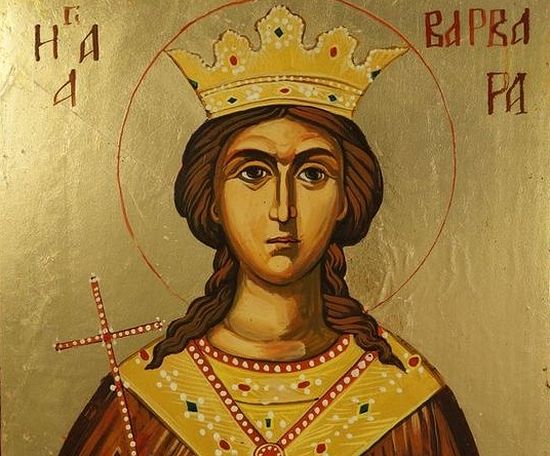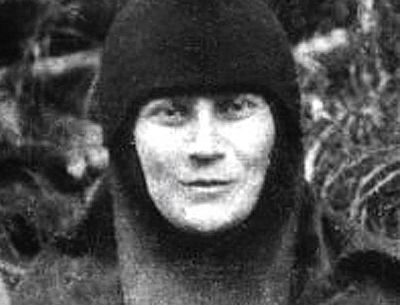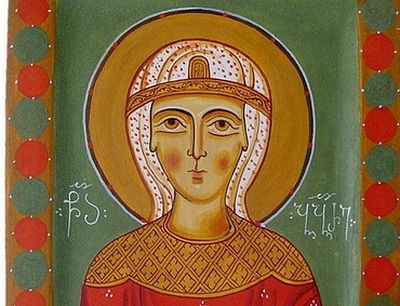When I look around our parish community, I am thankful that we are not all alike in our personalities, our backgrounds, our interests, and our gifts. Our distinctiveness enriches us and helps us realize our dependence upon one another as members of the Body of Christ. It also keeps us from falling into the common error of thinking that growing in holiness means losing our personal characteristics. In fact, the opposite is true. The more we become like God in holiness, the more we become our genuine selves as His unique sons and daughters. That is why our Savior was born at Christmas: to restore us to our true identity as His beloved children. And as every parent knows, children are distinctive characters.
In the Gospel lesson [for the tenth Sunday of Luke], Jesus Christ healed a woman who had been stooped over for eighteen years, saying “Woman, you are freed from your infirmity.” When a legalist complained that it was wrong to heal someone on the Sabbath, the Lord pointed out that even oxen and donkeys get water then. So how could it be wrong for a daughter of Abraham to be healed of her affliction on the Sabbath? He treated her not as an anonymous bundle of disability or an impersonal legal case, )but as a unique person whom He loved and wanted to restore to the holiness for which He created her in the first place. He cared for her as His own daughter.
We do not have to look very deeply into our own souls to find what keeps us all stooped over, what steals our personal distinctiveness in freely becoming more like the Lord Who created us in His image and likeness. Instead of embracing the joy and holiness that are ours through Christ, we remain slaves to disordered desires and habits of thought, word, and deed that diminish our personal distinctiveness, that make us more like anonymous bundles of corruption than His unique children. When anger, pride, envy, lust, selfishness, and other passions control us, we become pretty much like anyone else under their domination. Like pigs feeding at a trough, we become obsessed with gratifying our desires and act as those with no calling higher than to get what we want at the moment. That is not a very pretty picture, but we can all see ourselves in it.
The Savior is born at Christmas to set us free from such demeaning slavery. As St. Paul wrote, “in Christ Jesus you are all sons of God, through faith.” In Him, “There is neither Jew nor Greek, there is neither slave nor free, there is neither male nor female; for you are all one in Christ Jesus. And if you are Christ’s, then you are Abraham’s offspring, heirs according to promise.” No matter what categories we fit into based on human divisions, we share fully in the healing and restoration of our true dignity as His sons and daughters. Our true distinctiveness shines all the more as we overcome our self-imposed slavery to everything that holds us back from becoming brilliant icons of Christ.
When the Lord said, “Woman, you are freed from your infirmity,” He was speaking to us all as members of the Church, the Bride of Christ. Having been baptized into Christ, we have all become His Bride, united intimately with Him in holy love and called to grow eternally in our participation in His life. The Members of the Holy Trinity are united in love as distinct Persons, and the same must be true of us all as members of His Body, His Bride, the Church.
Today we commemorate great Saints whose examples show us that such blessedness is truly open to all. The Great Martyr Barbara was a young virgin who died at the hands of her pagan father for refusing to deny Christ in the early fourth century. He had originally kept her in seclusion due to her great beauty, but she discerned on the basis of reason that the pagan gods were false idols. When Barbara later professed the Christian faith, she openly defied her father, who handed her over to be tortured. Seeing her steadfastness in suffering terrible abuse, a Christian woman named Julianna joined her in enduring horrible treatment. They were both beheaded when they steadfastly refused to deny their Lord.
We also remember today a very different person. St. John of Damascus was an administrator under Muslim rulers, and he composed many important theological and liturgical works that remain integral to the life of the Church. His right hand, which was cut off due to his powerful defense of icons, was miraculously restored by the Theotokos. After retiring to a monastery, where he was an example of obedience, asceticism, and humility, he departed this life peacefully in the eighth century at the advanced age of 104.
The example of these Saints shows us that it does not matter whether we are young, old, male, female, or face this or that set of challenges. We may still grow in personal union with the Lord regardless of any such details. The door to holiness is fully open to us all. Christ Himself is the Door (John 10:9) through Whom we may all enter into the fulfillment of our unique personalities in Him. The stories of the Saints are quite diverse, and their personal uniqueness shines brightly through their particular circumstances. They saved their lives by losing everything that separated them from God, and we will find our salvation by dying to everything that mars and distorts the unique beauty of our souls. That is another way of saying that we become free by being loosed from slavery to our sins. It is another way of saying that we will no longer be stooped over with spiritual disability when we rise with Christ from death and decay to the life and strength which are ours as beloved sons and daughters of the Most High.
The Church gives us these biblical passages and Saints as we prepare to welcome Christ at His birth. Contrary to what is popular in our culture, there is more to welcoming Him than having a nice cultural celebration of the season. There is also more to welcoming Him than having warm feelings about the Lord for a couple of days and then returning to life as usual. If we are truly to welcome the Savior into our lives in a new way this Christmas, then we must actually straighten up from being stooped over in sin. We must actually find a measure of healing for the corruption and infirmity that have taken root in our souls. We must become more fully our true selves by growing in personal union with Christ, being transformed by Him for a life of greater holiness. Even as Saints like the Great Martyr Barbara and John of Damascus became living icons of God’s salvation, we must also. That is truly what it means to welcome our Lord at His birth.
Fortunately, we do not attempt to do that simply by our own power, but by cooperating with the infinite mercy and grace of our Lord. The woman who had been stooped over for eighteen years could not have healed herself, but Christ did. Gentiles could not have made themselves heirs to the promises to Abraham, but Christ extended those blessings to us through faith. Sts. Barbara and Julianna could not have endured their sufferings simply by will power, and John of Damascus could not have restored his own severed hand. You and I will not become more fully ourselves in God’s image and likeness simply by our own efforts, but by uniting ourselves to Christ in humble faith and repentance. We must open ourselves to Him and embrace His holy life so that the healing power of His salvation will become evident in us. That is what it will mean for us to welcome Him into our lives this Christmas.
We must take the small steps that we are capable of this Advent in order to prepare to receive our Savior. That means embracing fasting and other forms of self-denial. It means sacrificial generosity to the poor and lonely. It means confessing our sins and turning away from them. It means apologizing to those we have wronged and offended, and doing what we can to heal broken relationships. It means praying for our enemies and going out of our way to help them. The more that we devote ourselves to daily prayer and reading the Scriptures, the lives of the Saints, and other spiritually beneficial writings, the more strength we will have for embracing all these spiritual disciplines.
If we will have such a Nativity Fast, then we will rise up from being stooped over with sin and become more truly the beautiful and unique sons and daughters whom our Lord created us to be in the first place. There is no better way to prepare to receive Christ with joy at Christmas.



